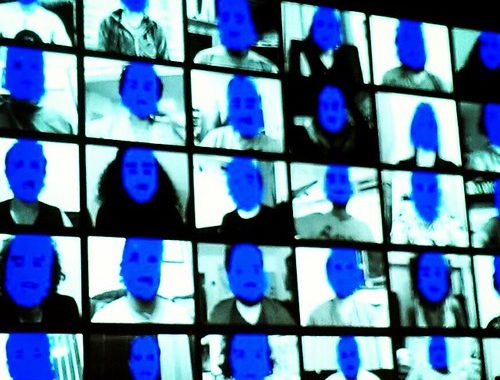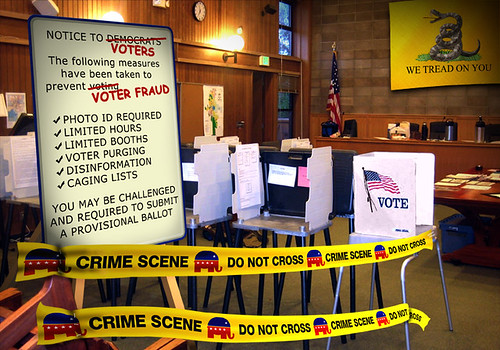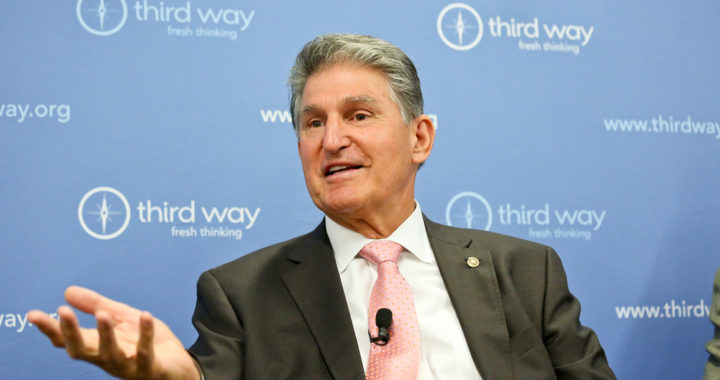More than 250 voter suppression bills have been introduced this year by Republican lawmakers in 43 states, and a new analysis shows that the GOP’s ongoing nationwide assault on the franchise threatens to restrict ballot access for tens of millions of Americans.
In what could amount to the most significant attack on voting rights since the post-Reconstruction era, when Southern states disenfranchised Black citizens as well as many poor white ones, Republican lawmakers in dozens of states across the U.S. have proposed at least 253 laws that would “limit mail, early in-person, and Election Day voting with such constraints as stricter ID requirements, limited hours, or narrower eligibility to vote absentee,” The Washington Post reported Thursday.
According to the Post:
Limits to early or absentee voting are the most common measures among this year’s batch of proposed restrictions, with such bills on the table in 33 states. Nearly 85 million voters used one of those methods to cast their ballots in those states last year—more than half of all Americans who voted in the Nov. 3 election.
And the new proposals could do more than rein in early and mail voting. Like squeezing a balloon, the measures could dramatically shift voting to Election Day. That has raised alarm among voting rights advocates that the 2022 midterm elections and 2024 presidential contest could be marred by catastrophically long waits to vote—particularly in big cities, where lines are already a common hurdle for millions of Americans.
“Long lines are going to be the story of 2022 unless something is done,” said Democratic elections lawyer Marc Elias, who said he is preparing for a “busy year” of litigation if these laws are enacted. “We have to recognize early on in this next election cycle that this is now the defining feature of the Republican Party, in competitive states and uncompetitive states. In red states and blue states. They don’t run on economic issues, or even social issues. They run on shrinking the vote.”
The Post’s analysis is based on data gathered as of February 19 by the Brennan Center for Justice. Since then, even more bills intended to make voting more difficult—particularly for communities of color and other Democratic-leaning constituencies—have been introduced. Just this week, one such bill was advanced in Georgia by the Republican-controlled state Senate, while Iowa’s Republican Gov. Kim Reynolds signed into law a bill that curbs early voting.
Mother Jones journalist Ari Berman, a voting rights expert, has argued that in the wake of former President Donald Trump’s failed attempt to reverse the outcome of the 2020 presidential election, state-level Republicans are “weaponizing Trump’s lies” about fraud in an attempt to roll back voting rights following last year’s historic turnout.
“Passing the For the People Act through the Senate is the first—and best—line of defense against this effort by Republicans to keep millions of Americans from voting in future elections.”
—Repair Our Democracy
In a report released earlier this year, the Brennan Center also emphasized that “these bills are an unmistakable response to the unfounded and dangerous lies about fraud that followed the 2020 election.”
But according to Washington Post columnist Greg Sargent: “The GOP’s escalation of voter suppression isn’t just a response to their loss. It should also be seen as a revanchist effort to strangle the ambitious—and popular—agenda that Democrats are undertaking to rescue the country from two of its biggest crises of the modern era.”
“It’s no accident that the GOP’s redoubled anti-democratic and anti-majoritarian efforts have come even as President Joe Biden’s $1.9 trillion rescue package is winning the support of large popular majorities,” Sargent added. “Indeed, for Republicans, the broad popularity of Biden’s first big move is itself arguably making their plunge into anti-democratic radicalization more urgent.”
While the GOP has attempted to justify its increasingly extreme voter suppression push by appealing to the need to strenghten “election integrity”—even though Biden’s victory came in an election the federal government’s top cybersecurity official called “the most secure in American history”—right-wing figures have on more than one occassion admitted the real reason they are opposed to making voting more accessible is because doing so hurts Republicans’ electoral chances.
“If we don’t do something about voting by mail, we’re going to lose the ability to elect a Republican in this country,” Trump ally Sen. Lindsey Graham (R-S.C.) told Fox News host Sean Hannity last November.
Last week, an attorney representing the Arizona Republican Party told ultra-conservative Supreme Court Justice Amy Coney Barrett that the GOP wanted to uphold a discriminatory state law throwing out ballots cast in the wrong precinct because counting those votes would put “us at a competitive disadvantage relative to Democrats.”
On Thursday, Arizona state Rep. John Kavanagh (R-23) said that “there’s a fundamental difference between Democrats and Republicans.”
“Democrats value as many people as possible voting, and they’re willing to risk fraud,” said Kavanagh. “Republicans are more concerned about fraud, so we don’t mind putting security measures in that won’t let everybody vote—but everybody shouldn’t be voting.”
As Common Dreams noted last month regarding the GOP’s post-2020 assault on voting rights, some of the proposals, including a bill under consideration in Arizona, would empower state legislatures to overturn election results.
Berman has called Republican lawmakers’ well-coordinated campaign to curtail voting rights and undermine the popular will “a huge scandal that should be getting as much attention as Trump’s plot to overturn the election.”
In response to the surge of GOP-sponsored anti-democracy bills, Biden last week signed an executive order promoting access to the polls.
And without the support of a single Republican, the Democratic-controlled House passed H.R. 1, the For the People Act, a sweeping set of popular pro-democracy reforms.
Congress “has the legal and constitutional power to… stop [Republicans’] voter suppresion laws, cold,” Michael Waldman, president of the Brennan Center, wrote earlier this week. “What it needs is the political will.”
Voting rights advocates say that unless Senate Democrats abolish the filibuster, an anti-democratic tool currently allowing the Republican minority to block the enactment of popular legislation, the For the People Act is unlikely to be passed by the upper chamber.
“Congress has the authority and the opportunity to end this assault on our democracy,” Repair Our Democracy said in a statement released Thursday.
“Each new voter restriction bill that’s proposed in a statehouse or signed into law by a governor increases the urgency for federal lawmakers to address this crisis,” the advocacy group added. “Passing the For the People Act through the Senate is the first—and best—line of defense against this effort by Republicans to keep millions of Americans from voting in future elections.”


